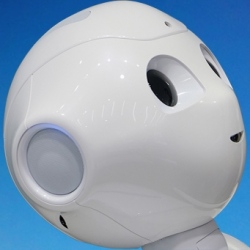
A platform, in technology, is essentially a piece of software that other companies build on and that consumers cannot do without. Microsoft dominated personal computers because its Windows software became the center of the consumer software world. Google came to dominate the Internet through search.
If true believers in A.I. are correct, that this long-promised technology is ready for the mainstream, the company that controls A.I. could steer the tech industry. “Whoever wins this race will dominate the next stage of the information age,” said Pedro Domingos, a machine learning specialist and the author of “The Master Algorithm,” a 2015 book that contends that A.I. and big-data technology will remake the world.
Fei-Fei Li, a Stanford University professor who is an expert in computer vision, said one of her Ph.D. candidates had an offer for a job paying more than $1 million a year, and that was only one of four from big and small companies. On the candidate’s list, one of the biggest technology companies was ranked lowest, in terms of both money and excitement, she noted dryly.
For years, tech companies have used man-versus-machine competitions to show they are making progress on A.I. In 1997, an IBM computer beat the chess champion Garry Kasparov. Five years ago, IBM went even further when its Watson system won a three-day match on the television trivia show “Jeopardy!” Today, Watson is the centerpiece of IBM’s A.I. efforts.
Now, Google’s A.I. is drawing additional attention and pointing to a consolidation among tech’s biggest companies. By 2020, the market for machine learning applications will reach $40 billion, IDC, a market research firm, estimates. And 60 percent of those applications, the firm predicts, will run on the platform software of four companies, Amazon, Google, IBM and Microsoft.
In January, before the Google software’s latest Go victory, the scientific journal Nature published an article describing how the program had beaten a European Go champion in five consecutive matches, overshadowing an effort by another tech giant, Facebook, to promote its own powerful Go-playing A.I. software. Google’s software went on to beat the Go grandmaster Lee Se-dol 4-1 in South Korea this month.
IBM is making the broadest entry into A.I. Its Watson unit, set up as a separate division in early 2014, is both a software and a services business, with technology tailored to specific industries. More than 80,000 developers have downloaded and tried out the software, and the Watson division has 500 industry partners, including big companies and start-ups.
“It’s early days, but the long-term goal is to have hundreds of millions of people use Watson as self-service A.I.,” said David Kenny, general manager of the Watson division.
In 2015, Amazon and Microsoft both added machine learning capabilities to their cloud software platforms, Amazon Web Services and Microsoft Azure. The companies are using machine learning software to help customers spot patterns and make predictions in vast amounts of data.
Microsoft offers 18 machine learning services, including face recognition, text analysis and product recommendations. More A.I. capabilities, analysts say, should be announced at the end of the month, when Microsoft hosts a large conference for software developers in San Francisco.
Google is opening its A.I. technology to outsiders, seeking to attract developers. Last November, Google made the core of the machine learning technology its engineers use, called TensorFlow, available as free-to-use open-source software.
Some start-ups, like Diffbot in Palo Alto, Calif., are willing to jump into the fray with industry giants under the assumption that there is still plenty to figure out. The company, which was founded by Mike Tung, a Stanford computer science graduate student, in 2008, recently raised $10 million to compete directly with Google. Even though Diffbot is still being run out of a home near the Stanford campus, Mr. Tung is thinking big.
“Our goal is to capture all human knowledge,” he said. “I would like for Diffbot to build an iconic company around data. There are companies focusing on computing, but there is no Amazon of data.”
